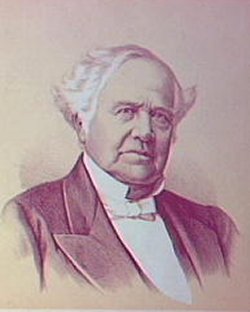Blackbirding





Blackbirding refers to the coercive recruitment and transportation of Pacific Islanders through deception or force to work as laborers in countries far from their native land, primarily during the 19th century. This practice was most prevalent in the Pacific Islands, where individuals were taken to work on plantations, especially in Australia, Fiji, New Caledonia, and the Samoan Islands, among others. The term "blackbirding" is often associated with the slave trade, although there are distinctions in terms of legality and operation. However, the conditions and treatment of transported individuals were frequently akin to slavery.
History[edit]
The origins of blackbirding can be traced back to the 1860s, when there was a high demand for labor in the colonies due to the expansion of plantation agriculture. Initially, the practice involved trickery and kidnapping, but over time, some efforts were made to regulate and provide a semblance of legality to the process. Despite these efforts, the practice of blackbirding remained exploitative and abusive.
In Australia, the demand for labor in the sugar cane plantations of Queensland led to the widespread use of blackbirded labor from the Pacific Islands, particularly from the Solomon Islands and Vanuatu, then known as the New Hebrides. The Australian government eventually passed the Pacific Island Labourers Act 1901, which sought to deport the Pacific Islanders back to their homelands, a process completed by 1906, although not all were repatriated.
Fiji also saw a significant influx of blackbirded laborers, primarily from the Solomon Islands and Vanuatu, to work on cotton and sugar plantations. The practice in Fiji was somewhat regulated under the British colonial administration, but abuses and forced labor conditions were still prevalent.
Impact[edit]
The impact of blackbirding on the Pacific Island communities was profound. It led to a significant depopulation of certain areas, disrupted social structures, and had long-lasting effects on the cultural and demographic makeup of the Pacific Islands. The descendants of those who were blackbirded remain in places like Australia and Fiji, contributing to the multicultural fabric of these societies but also serving as a reminder of the dark history of exploitation and forced migration.
Contemporary Relevance[edit]
Today, the history of blackbirding is a critical part of the Pacific Islands' colonial history, contributing to discussions on racism, human rights, and post-colonialism. It highlights the need for reconciliation and acknowledgment of the injustices faced by Pacific Islanders during this period. Efforts to commemorate and educate about blackbirding are part of broader movements to address historical injustices and promote healing and understanding among affected communities.
See Also[edit]
- Slavery
- Indentured servitude
- Colonialism in the Pacific Islands
- History of Australia
- History of Fiji
Ad. Transform your life with W8MD's Budget GLP-1 injections from $75


W8MD offers a medical weight loss program to lose weight in Philadelphia. Our physician-supervised medical weight loss provides:
- Weight loss injections in NYC (generic and brand names):
- Zepbound / Mounjaro, Wegovy / Ozempic, Saxenda
- Most insurances accepted or discounted self-pay rates. We will obtain insurance prior authorizations if needed.
- Generic GLP1 weight loss injections from $75 for the starting dose.
- Also offer prescription weight loss medications including Phentermine, Qsymia, Diethylpropion, Contrave etc.
NYC weight loss doctor appointmentsNYC weight loss doctor appointments
Start your NYC weight loss journey today at our NYC medical weight loss and Philadelphia medical weight loss clinics.
- Call 718-946-5500 to lose weight in NYC or for medical weight loss in Philadelphia 215-676-2334.
- Tags:NYC medical weight loss, Philadelphia lose weight Zepbound NYC, Budget GLP1 weight loss injections, Wegovy Philadelphia, Wegovy NYC, Philadelphia medical weight loss, Brookly weight loss and Wegovy NYC
|
WikiMD's Wellness Encyclopedia |
| Let Food Be Thy Medicine Medicine Thy Food - Hippocrates |
Medical Disclaimer: WikiMD is not a substitute for professional medical advice. The information on WikiMD is provided as an information resource only, may be incorrect, outdated or misleading, and is not to be used or relied on for any diagnostic or treatment purposes. Please consult your health care provider before making any healthcare decisions or for guidance about a specific medical condition. WikiMD expressly disclaims responsibility, and shall have no liability, for any damages, loss, injury, or liability whatsoever suffered as a result of your reliance on the information contained in this site. By visiting this site you agree to the foregoing terms and conditions, which may from time to time be changed or supplemented by WikiMD. If you do not agree to the foregoing terms and conditions, you should not enter or use this site. See full disclaimer.
Credits:Most images are courtesy of Wikimedia commons, and templates, categories Wikipedia, licensed under CC BY SA or similar.
Translate this page: - East Asian
中文,
日本,
한국어,
South Asian
हिन्दी,
தமிழ்,
తెలుగు,
Urdu,
ಕನ್ನಡ,
Southeast Asian
Indonesian,
Vietnamese,
Thai,
မြန်မာဘာသာ,
বাংলা
European
español,
Deutsch,
français,
Greek,
português do Brasil,
polski,
română,
русский,
Nederlands,
norsk,
svenska,
suomi,
Italian
Middle Eastern & African
عربى,
Turkish,
Persian,
Hebrew,
Afrikaans,
isiZulu,
Kiswahili,
Other
Bulgarian,
Hungarian,
Czech,
Swedish,
മലയാളം,
मराठी,
ਪੰਜਾਬੀ,
ગુજરાતી,
Portuguese,
Ukrainian
